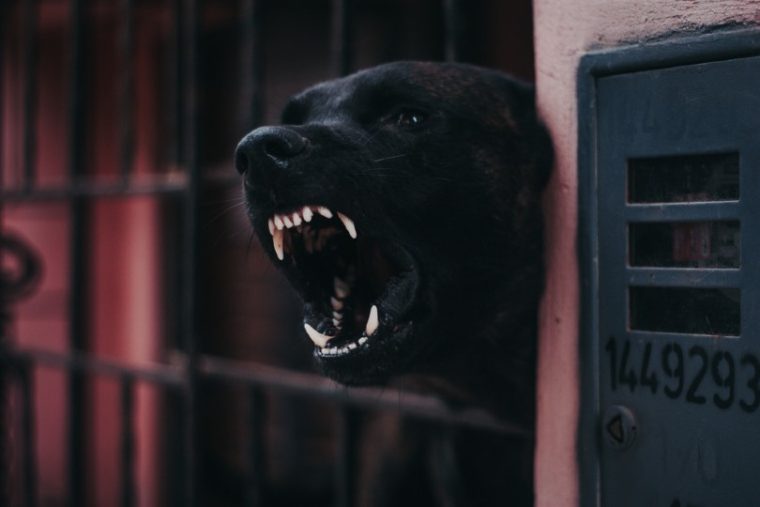
Does your dog’s late-night barking keep you(or your neighbors)up? Dogs bark for many reasons, everything from boredom to needing to go to the bathroom to certain medical conditions. Unfortunately, dogs can’t tell us why they bark at night. As a pet owner, you may have to do some detective work to find out what’s causing your dog to bark..
Figuring out what’s causing your dog to bark can be difficult as well. That’s why we’ve created this guide to help to identify potential reasons why your dog might be barking at night, as well as how to stop it from happening.
The 7 Steps to Stop Nighttime Barking
If you’re desperate for a good night’s sleep, you might not know where to start. Below are seven steps to find the solution to your dog’s nighttime barking.
1. Rule Out Any Medical Conditions
If barking at night comes on suddenly or is accompanied by changes in appetite, urine output or bowel movements, or activity level, make an appointment with your veterinarian. You want to rule out any medical conditions.
If your pet is older, nighttime waking and barking could be a sign of dog dementia. If your dog has this condition, they may experience altered awake/sleep cycles. You can work with your veterinarian to find ways to keep your senior dog comfortable and reduce nighttime barking.

2. Check for Patterns in Nighttime Barking
If your dog has a clean bill of health, the next step is to see if you notice a pattern in their barking. Are they barking at the same time each night, or only on certain days of the week? Dogs have a keen sense of hearing, so they may hear something you cannot. The sound of a faraway train or your neighbor coming home from work might wake them up.
There’s not much you can do to stop outside noises completely. But, you can use white noise to combat any nighttime sounds. This can be as simple as turning on a fan or using a white noise app. Or, move your dog’s sleeping area to a quieter area of your house.
3. Establish a Nighttime Routine
All dogs can benefit from a nighttime routine. Take one last stroll around the block, bring out a special bedtime toy, and give them a small treat they only receive at night. Dim the lights, shut off the TV, and put on quiet music. Your dog needs to wind down from the day, just like you do.
The key here is to make your evening routine calm and soothing, not stimulating. Try to avoid rough play or energetic interactions with the neighborhood dogs. Right before bedtime, your dog might enjoy some quiet playtime with a puzzle toy.

4. Explore Calming Treats and Supplements
An anxious or particularly wired dog can benefit from an over-the-counter supplement at night. There is a vast array of calming treats for dogs on the market. These contain dog-safe doses of ingredients like hemp, valerian root, melatonin, and tryptophan.
When you give your dog a calming supplement, always follow the directions closely. If your dog has an underlying health condition or takes prescription medication, check with your vet before giving them any over-the-counter supplements.
5. Reevaluate Your Dog’s Sleeping Area
There could be an issue with your dog’s bed that you’ve overlooked that’s causing him to bark. When you evaluate where your dog sleeps, consider the following questions:
Try moving your dog’s sleeping area based on the answers to those questions.
And if you have multiple pets, you may have to separate them at bedtime. One dog could be waking the other up for some midnight playtime.

6. Know When to Ignore Nighttime Barking
If you’ve followed the above steps and your dog still barks at night, you do have the option of simply ignoring them. You may reinforce the barking if you go to your dog, play with them, or give them a treat during the night. This becomes a vicious barking/reward cycle. Your best remedy might be to put in some earplugs and ignore your dog.
7. Contact a Professional Dog Trainer
Ignoring nighttime barking—or barking at any time of the day—isn’t an option for every household. If you share walls with another home or leave your windows open, you risk annoying your neighbors. If you’ve exhausted all your options or it isn’t practical to ignore the barking, you should consult with a professional dog trainer.
Some trainers can come to your home and work with you and your dog. Other trainers can do training sessions via a video call. And yet another option is a boarding service, where your dog stays at a training facility until the nighttime barking is remedied.

Conclusion
Nighttime barking is a behavior that can be detrimental to both you and your pets. Your dog needs a good night’s sleep as much as you do. By following the above suggestions and with a little patience, and trial and error, you can find a solution. And if all else fails, there’s nothing wrong with reaching out to a professional to help.
Featured Image Credit: Sebastian.bonilla, Shutterstock








